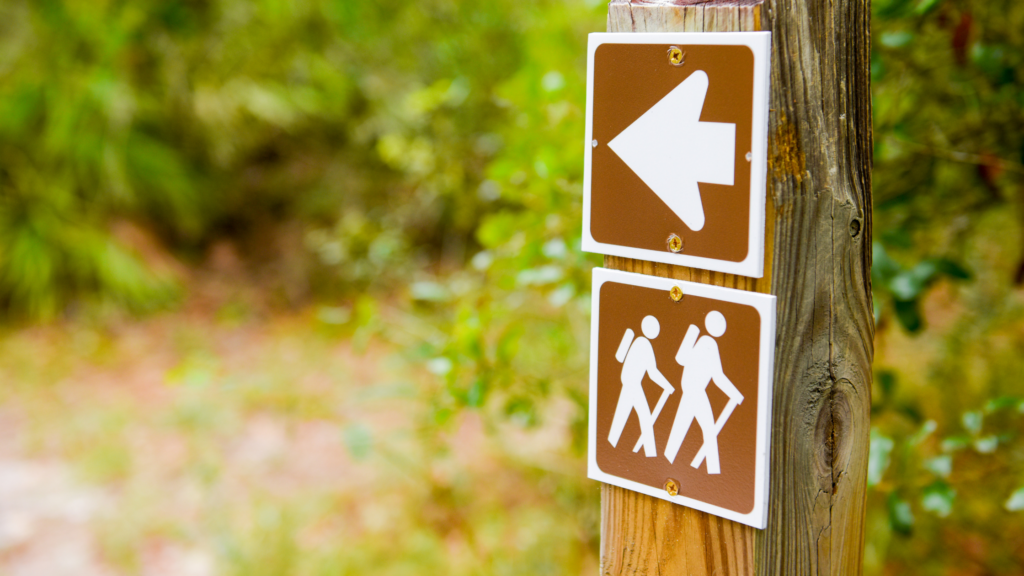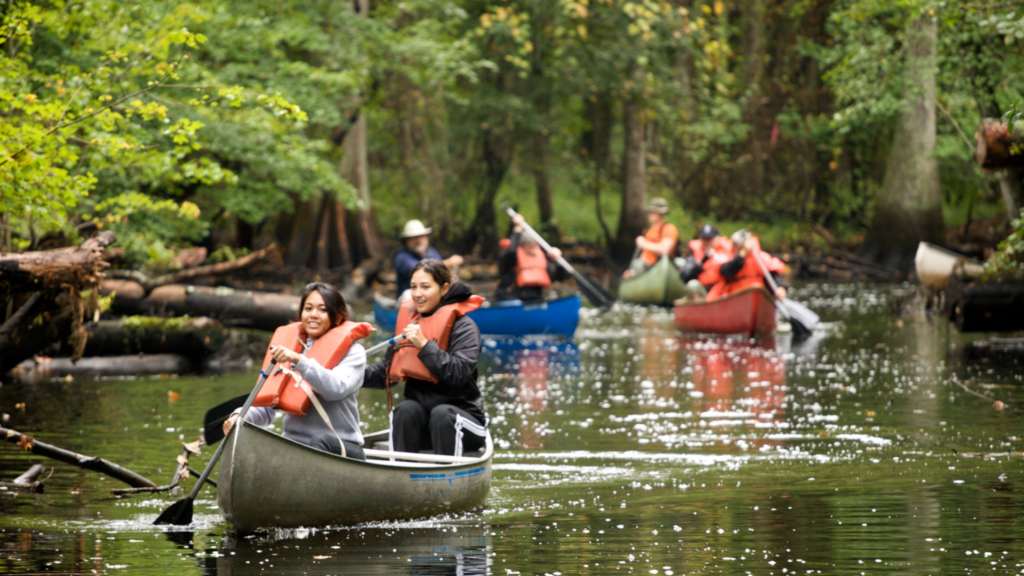 Over the course of this series we’ve given you a lot of ideas and advice on moving your RCIA process to a year-round model… but none of those efforts can bear fruit without recognizing that the RCIA, by its very nature, is an individual journey. For this reason we need to focus on forming the person, not necessarily the group.
Over the course of this series we’ve given you a lot of ideas and advice on moving your RCIA process to a year-round model… but none of those efforts can bear fruit without recognizing that the RCIA, by its very nature, is an individual journey. For this reason we need to focus on forming the person, not necessarily the group.
A common misconception about RCIA seekers
For too many years, for many reasons, we’ve pretty much operated our RCIA processes from a “group” perspective with the assumption that everyone in the group had pretty much the same starting point (I know nothing about the Catholic faith), and everyone had pretty much the same goals (becoming a Catholic at the Easter Vigil). Time and experience, however, have taught us otherwise, showing us that neither of these assumptions is true. The adult seekers coming to us have a variety of experiences that affects both their starting point and their goals. By discounting that experience we not only ignore their previous life and faith experiences, we risk leading them down a path of initiation that may not be appropriate (pastorally or canonically).
RCIA seekers come with a lifetime of experience
Catechizing children in groups has a certain efficiency and perceived effectiveness only because their age and grade level is a strong indicator of their life experience. The same cannot be said for adults. The vast differences in age and life experiences they bring to our door requires us to do a more thorough inquiry process. When it comes to the precatechumenate, I think we wrongly assume that we are a neutral party in the inquiry process. On the contrary, this period of inquiry is a two-way street. It’s not just for them to get to know us, but it’s for us to get to know them.
Reinventing the RCIA inquiry process
The period of inquiry is not a group process nor an academic introduction to the Catholic faith. Instead it is a one-on-one period of discovery for both the seeker and the RCIA catechist. We get to know them and their needs while they get to know who we are (as a parish and as a Church) and what it might take for them to be fully initiated into our community.
So how do we reinvent the inquiry process? I could go into detail about how we developed this in our parish, but I find Nick Wagner’s book Seek the Living God: Five RCIA Inquiry Questions for Making Disciples provides a very useful and workable model. Perhaps the most important element of this approach is that it now places the burden of responsibility on the seeker, not the catechist. No longer are we pushing them through a course of study, but instead we’re guiding them on a journey.
If you don’t have your own copy of Seek the Living God, you can
order one here.
An individual journey shared as a group
So what of our traditional catechetical sessions? Just because everyone in the RCIA is on their own personal journey doesn’t mean they can’t share part of that journey with everyone else in a group setting. Put another way, the RCIA is not a group of people on a singular journey, but rather, individuals on a singular journey which they can share with a group of others. It might sound like I’m saying the same thing, but there is a difference… and that is one of perspective. We as RCIA catechists need to recognize that all those attending regular catechetical sessions are not all traveling the same path. Their experiences are different, their motivations are different, and their goals are different. Similarly, every catechumen and candidate needs to understand that their journey is unique, even though part of that journey is shared in a group.
Catechetical sessions become only part of the process
You may recall that we’ve previously recommended throwing out your syllabus in favor of sessions that follow the liturgy and the seasons of the liturgical year. That’s because our catechetical sessions don’t make up the entire formation process. Instead, they are only part of it. Formation also occurs when they attend Mass ever week and participate in other activities in the life of the parish. And because catechetical sessions follow along with the calendar of the Church, individuals can more easily jump into and out of those sessions without the fear of “missing something important.” Remember, their journey through the catechumenate may be a full year or more, or in some cases much less. There is no fixed timetable for this period of the process.
How long will RCIA take?
This is perhaps the number one question I get from seekers. They think it’s a simple question because they come in with certain expectations, made all the more difficult by the fact that this is how we in the RCIA have portrayed the process for many years (and how some parishes still do). In order to help them better understand our approach, I explain how RCIA is not a series of classes you take in order to “graduate” as a Catholic, but rather, it is a process of conversion to the Christian life. How long that takes must take into account many different factors… and those factors must be based on the individual seekers needs and goals… which we discover during the inquiry process.
Your Turn
How have you taken time to learn what your seekers are looking for on their faith journeys? How do you help them plan for their next steps? Share your thoughts in the comments below.
If you don’t have your own copy of Seek the Living God, you can
order one here.


















I’m grateful for this because I’ve pretty much reduced the inquiry period to a series of one-on-one conversations with inquirers — answering their questions, trying to ground the conversations in the scriptures as much as possible and giving them a sense of what scripture is, how it was written– and by whom (as far as we know) — finding out about their lives, their families, etc. (I’m failing in introducing them to the life of the parish, for which I have many excuses but no really valid reasons. I’m working on this failing.)
I’m able to do inquiry this way because, #1, we have a small parish (under 500 people), #2 because I explain to everyone during their first visit that the process isn’t a class in being Catholic or a matter of “sign-on-the-dotted-line.” Rather it’s a matter of personal transformation. Pretty often they never come back.
When they do come back and begin to engage in the conversations, sometimes they stop coming later on — before they’re welcomed into the catechumenate or candidacy. If they keep coming, sometimes they become really good Catholics, and — sadly — sometimes they find it all too much and stop coming regularly. Parly it’s a mystery of grace, and partly it’s my failure to help them develop relationships with more parishioners and/or into parish ministries. True confession over.
Please keep going. What you’re doing is a blessing to the Church.
Angela, perhaps you are being too hard on yourself – the Holy Spirit comes into play here as well.
Check out Galipeau’s Apprentice program (a book available on Amazon). It suggests activities for Catechumens/Candidates related to the Gospel reading for each Sunday of the year. (Now if I could only get that going in my parish!)
Thanks very much. Gerry and I graduated the same year from CTU. I’m glad to know he’s getting published. Thanks. Angela Hibbard, IHM
Our parish began to prepare to transition to a year-round process around Easter, 2018. We previously used Inquiry to teach topics such as Faith, Creation and the Fall, Covenants and Jesus the New and Eternal Covenant. Now we use “Foundations in Faith” which has the inquirer look at their own life and stories and we connect them with scripture to see where God the Father, Son and Holy Spirit have been in their life. They have plenty of opportunity to talk about themselves and discover where they have been and where they want to go. Each session is driven by the questions and comments of the inquirer. This happens right after Sunday Mass. When we see their willingness to continue to attend Mass, evidence of praying outside of Mass, a basic understanding of the Good News of Jesus Christ (realize, not everyone knows who Jesus Christ is), a beginning of the understanding of sin and the understanding that Catholics love God by loving neighbor, we invite them to move into the Catechumenate.
We explain that the ideal time for Baptism is the Easter Vigil and that at least a year in the Catechumenate is recommended to experience the entire liturgical year. For the baptized, we explain they will be welcomed into the church when they, the team and the pastor agree they are ready. We base each week’s session on the scriptures.
Our reality has been such that getting a person in the RCIA to do anything more than attend Mass and a session once a week, such as attending a social event or helping with a service activity or spending time with anyone in ministry is very difficult but we keep trying to let them know about the opportunities. We also make a point to introduce the person to everyone we say hello to at the parish.
We are experiencing people in their late twenties and early thirties who don’t get past the initial interview or who only come to a few inquiry sessions and then disappear because of the commitment to Sunday Mass and the learning and participating in the parish that is involved. I am reminded of a person who wants to play a musical instrument but doesn’t want to practice. Hopefully, the desire will continue to burn in their hearts and they will come back.
Lastly, the transition to year-round is not just a time-line thing. It is a transition for the team to an understanding that it is conversion we are looking for rather than an almost automatic entry into the church at the Easter Vigil.
I would like to follow up to my comments of two years ago. We no longer meet weekly as a group and although we have a list of topics which are essential, we do not have a lesson plan. For inquirers we use Nick Wagner’s Five Questions found in “Seek the Living God” to learn where a person is and what their needs are. Using their own words, we produce a Faith Formation Plan which includes their goals, plans and an evaluation so that they own their journey. Each person is paired with a parish sponsor who meets with them weekly on their own schedules to reflect where God has been in their life that week. Using Diana Macalintal’s “Your Parish is the Curriculum” as a guide, the person is immersed in parish life by attending Mass and participating in social and service activities as their schedule and personal preferences come into play. My responsibility as director is to let the Holy Spirit guide me to suitable sponsors and then provide resource material for the sponsor to use in explaining our doctrines and practices. This process is not ruled by a lesson plan since questions naturally come up in their conversations. Just as Nick and Diana have taught me, over the course of conversation, the faith is passed on and they learn to look to Father, Son and Holy Spirit as ever present in their lives. We meet once a month as a group to share our experiences and spend some time exploring the faith based on suggestions from the group. During this time of isolation due to the pandemic, we have easily transitioned to weekly phone calls and monthly zoom meetings for the group.